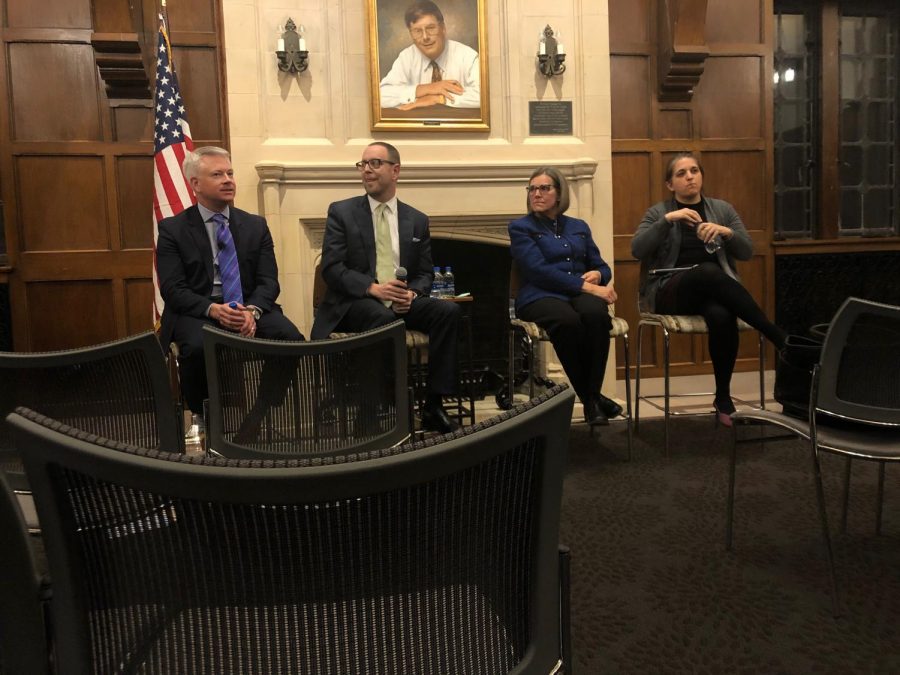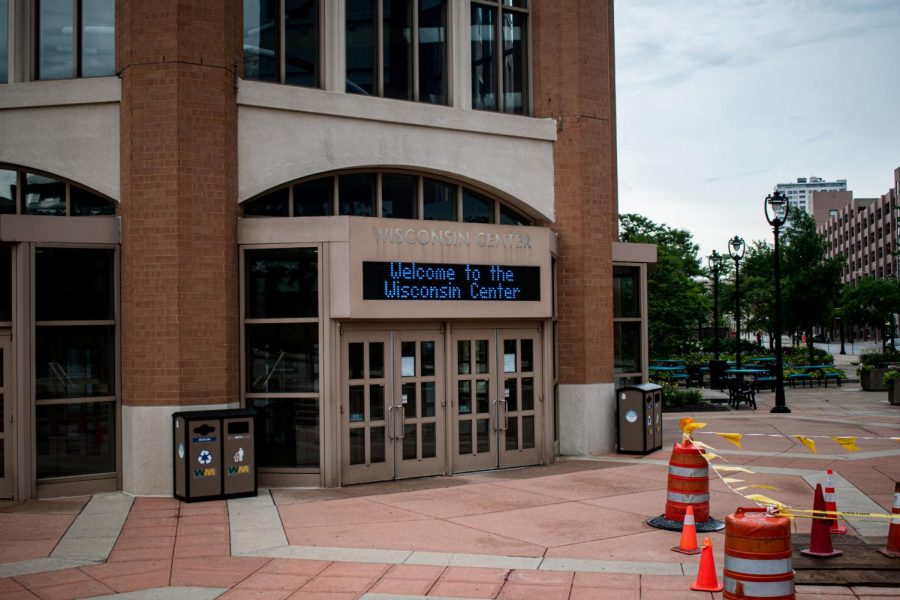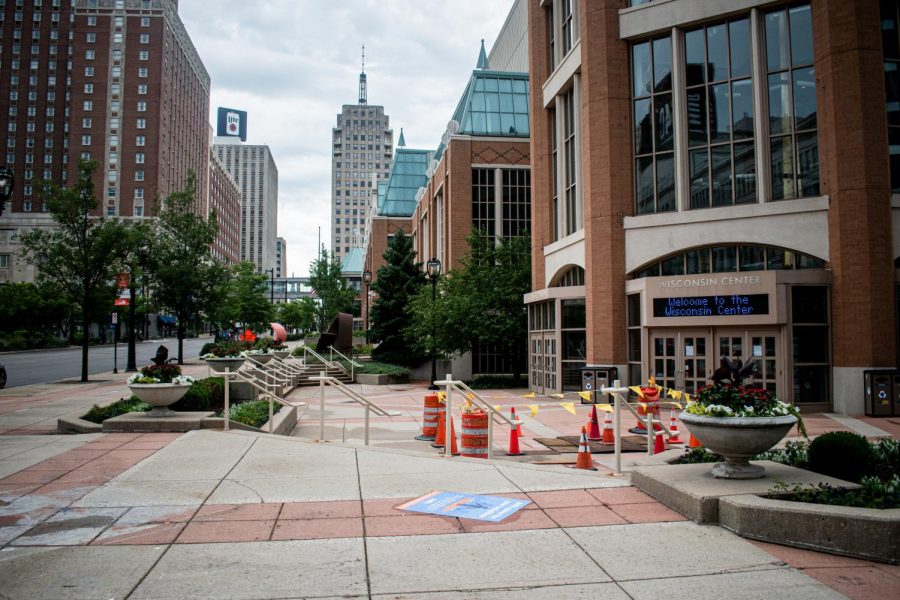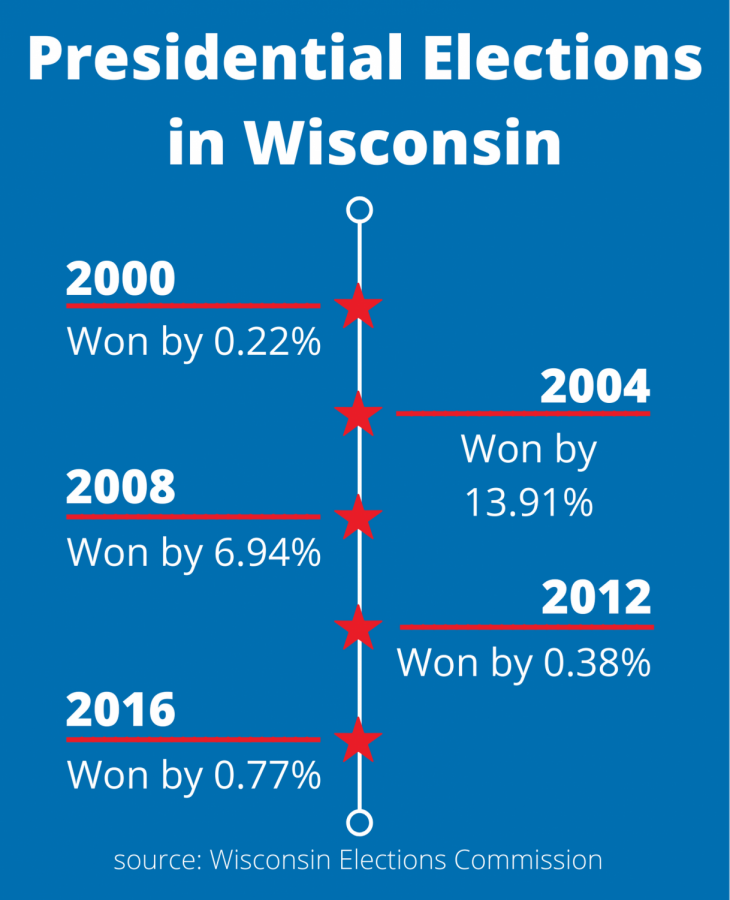The Department of Political Science, in partnership with the Les Aspin Center for Government, hosted a panel discussion examining the presidential nomination process Feb. 11 from 6-7:30 p.m. in the Sensenbrenner Hall Reading Room. The discussion covered primary elections, party conventions and the role of delegates in that order.
The event was the first of a three-part series, “Count to Down to the Convention,” which aims to educate members of the Marquette community on critical topics ahead of the Democratic National Convention taking place in mid-July of this year. The series’ other two panels, one on healthcare policy and another on climate change action, will be held on Mar. 12 and Apr. 21 respectively.
The Feb. 11 discussion, moderated by Les Aspin’s coordinator of student programs Christopher Murray, enlisted a panel of three speakers: Marquette professor of political science Julia Azari, 2020 DNC Host Committee board member John Miller and former Wisconsin State Treasurer Cate Zeuske.
The discussion began by analyzing the nature of presidential primary elections — in other words, the way major parties select their nominees.
“You have a formal process that’s about fifty years old by which delegates are assigned through primaries and caucuses,” Azari said. “You also have an informal process that’s even newer that is — as informal processes tend to be — constantly in flux.”
After the first contests of the primary process, the Iowa caucus and the New Hampshire primary election, there is an “informal norm,” Azari said. In the event a candidate does not perform well in these initial contests, they withdraw from the running. The field narrows, and as a result, the nominee is often known long before the convention takes place.
“This year, that didn’t happen for Democrats. In 2016, that didn’t happen for Republicans either,” Azari said. “This level of competition and degree of uncertainty is somewhat new.”
The end of the nomination process is marked by a convention where delegates convene in a single city for a final vote. Last march, Milwaukee was selected to host the 2020 democratic convention over competing cities Houston and Miami. It will be the first time a convention of either party will be held in the state of Wisconsin.
“Why did Milwaukee get picked? 2016,” Miller said. “Let’s not sugarcoat it: the political parties want to have their conventions in states that matter.”
Wisconsin is one among a handful of critical battleground states known to swing between red and blue come election season. In 2016, Democratic presidential nominee Hillary Clinton narrowly lost Wisconsin by a margin of less than a percentage point to Republican opponent and current president Donald Trump, according to the Wisconsin Elections Commission. Only four years prior in 2012, Wisconsin voted for former President Barack Obama over Republican Mitt Romney.
Delegates are representatives of their party who ultimately decide who the presidential nominee will be at a national convention. Though the selection of delegates varies among Democrats and Republicans, the process shares some general similarities across party lines. Pledged delegates are selected via primary election or caucus with the intention they will vote for a specific candidate — though they are not bound to this candidate and may switch if they feel it necessary. Democratic superdelegates, or unpledged delegates, in the GOP are prominent party members such as congresspeople, governors and activists appointed by the Democratic or Republican national committees who are not assigned a preference to any particular candidate.
Former Wisconsin State Treasurer and Revenue Secretary Cate Zeuske was an unpledged delegate in the 1992 and 2000 Republican National Conventions.
“As a delegate, the most exciting moment is on the convention floor the night where, state by state, each delegation very ceremoniously gives their count for their nominee,” Zeuske said.
Delegates, however, are responsible for more than that just the final nominating vote, Zeuske said. They are activists for their respective states with an opportunity to learn from and network with fellow party members from across the nation.
Moderator Christopher Murray closed the discussion with one last culminating question: “What will the legacy of the (DNC) in Milwaukee be?”
Miller answered. “Our city will be on the cusp of national developments we before could only experience from afar,” he said.
This story was written by Nicole Laudolff. She can be reached at nicole.laudolff@marquette.edu.




